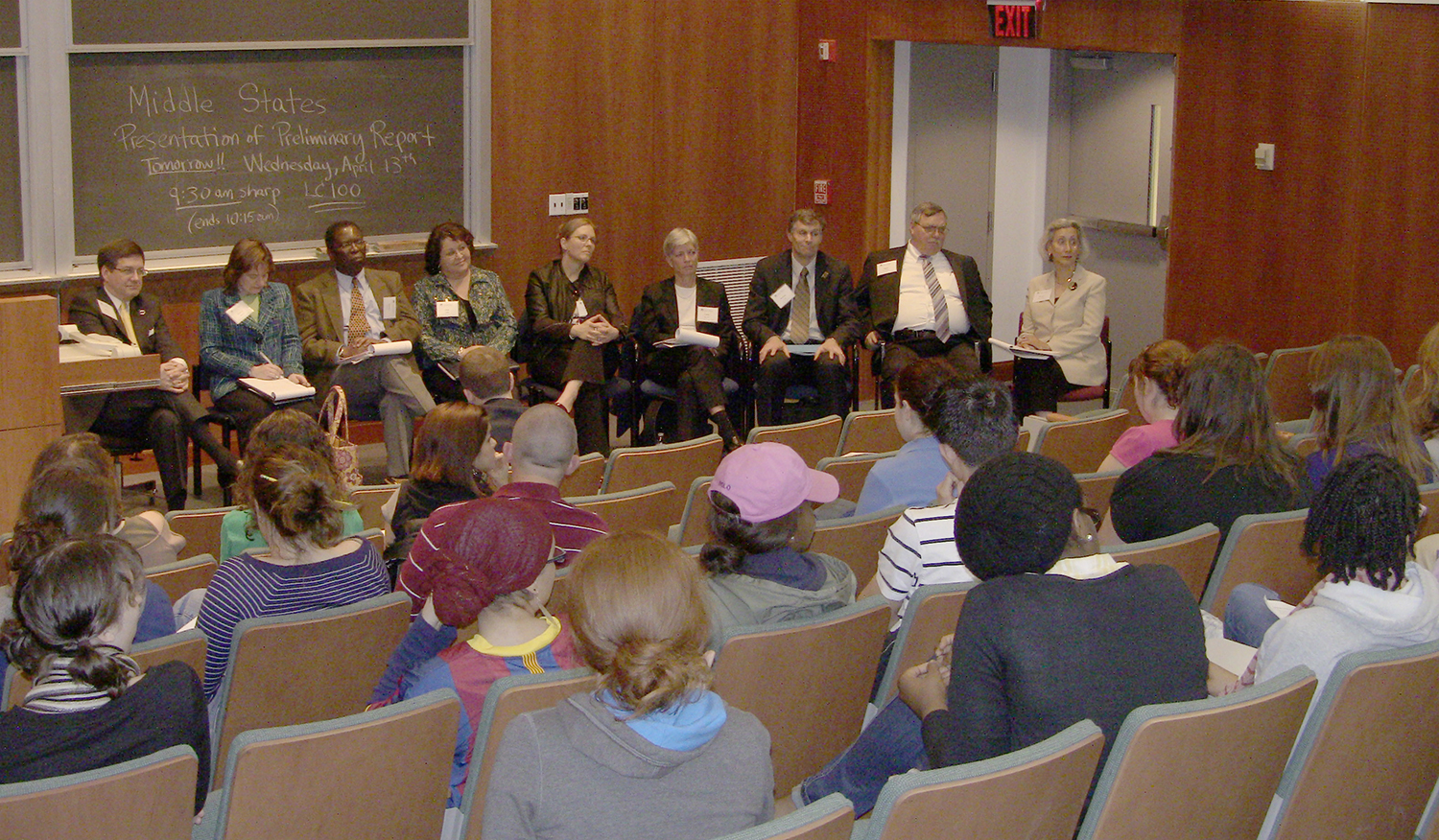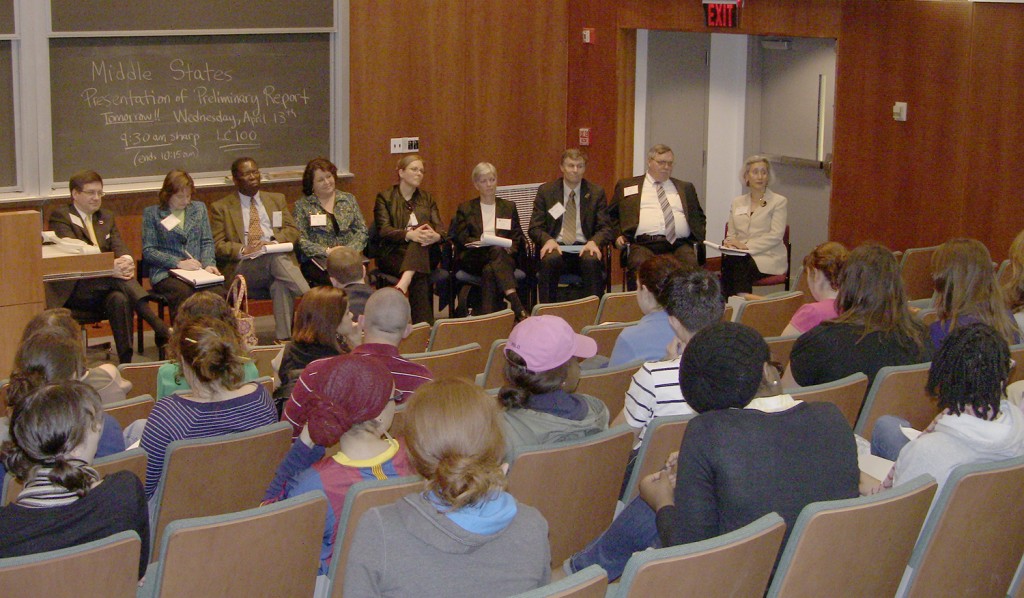

Armed with white notepads and pens, a team of reviewers from the Middle States Commission on Higher Education (MSCHE) gauged students’ involvement and feeling towards the SUNY New Paltz campus community during a question and answer session on Tuesday, April 12.
The team, which consisted of eight members from various institutions and universities in the northeast, asked students a series of questions ranging from the general feeling on campus to what students feel needs to be changed.
The visiting team toured campus and met with multiple campus contingencies over the week with hopes of collecting data to contribute to a report that will be sent to the MSCHE and decide whether SUNY New Paltz will be reaccredited.
While the reaccreditation process is voluntary and non-governmental, the United States Department of Education only sends federal financial aid money to institutions it believes are of strong academic quality or accredited.
“We’re not here to say ‘gotcha’ or criticize,” Middle States Site Team Chairperson William Ruud said. “We’re here to hear what you have to say.”
The session, which attracted over 30 students, met in Coykendall Science Building’s auditorium and was used by the visiting team to ask members of the student body about their experiences at SUNY New Paltz and their opinions on what could make the campus better.
Ruud said his team has been touring campus and asking questions to various organizations and departments across campus. He said the goal of his visiting team is to make a recommendation to the MSCHE, who will either accredit or deny SUNY New Paltz in June.
“Our trip has been wonderful, we have been able to move across the campus community and get a very good idea about what New Paltz is doing, what their aspirations are and what they think could be improved upon,” Ruud said.
The first question posed to the audience inspired a discussion on the importance and value of general education requirements. One by one, students told the committee experiences they have had taking classes that may not necessarily fit in their major plans, but still offered value – such as prompting them to switch their major.
“A lot of the courses double dip,” third-year secondary education major Francis Rodriguez said. “I had the opportunity to explore something while not being held back.”
Rodriguez said he attended the session because he was curious as to how the team could impact the future of SUNY New Paltz community and wanted to represent the EOP program.
“As a student, you should be informed,” Rodriguez said.
Students in attendance also told the committee reasons why they felt New Paltz was the university they decided to attend when exploring colleges in high school. The committee was specifically interested in how New Paltz’s growing reputation could spread farther than Long Island and lower New York, where students said the school’s prestige is most well-known while many students cited a sense of community and family they believe are campus-wide.
The discussion’s most participated moment came when Ruud asked the audience what they would like to see improved upon by New Paltz.
Students’ answers ranged from topics including a possible implementation of a disaster studies major, SUNY New Paltz reinstating the nursing program, improving parking availability on campus, having a specific facility to help LGBTQ students, better integration of minority students, attention to other religious holidays when finalizing the academic schedule, food options on campus and transfer students not being offered housing by the school upon arriving to New Paltz.
Ruud concluded his visit by inviting members of the campus community to a closed meeting for faculty, staff and students on Wednesday.
